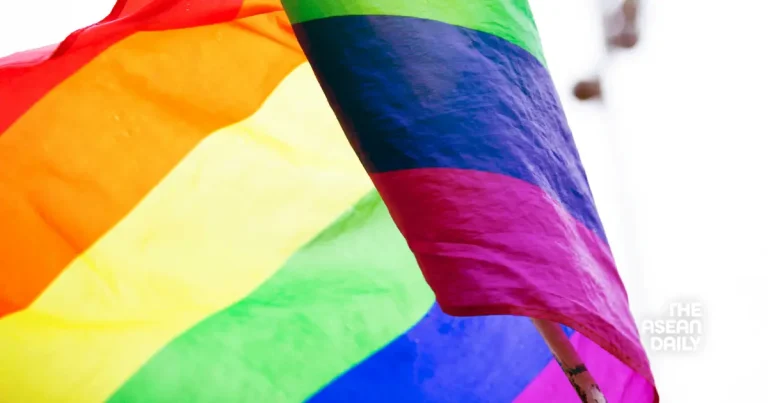11-6-2024 (SINGAPORE) A recent survey by market research firm Ipsos has shed light on the complex attitudes of Singaporeans towards LGBTQ rights, revealing a nuanced picture that defies simple categorization. While more Singaporeans support lesbian, gay, bisexual, transgender and queer (LGBTQ) rights than oppose them, a significant number remain undecided on various issues, particularly those related to the visibility and prominence of LGBTQ individuals in everyday life.
The survey, conducted online between February 23 and March 8, polled 500 Singaporeans, with quotas in place to ensure the respondents reflected the country’s overall population distribution in terms of age, gender, and ethnicity. Ipsos acknowledged that the respondents in Singapore and nine other countries were more urban, educated, and affluent than the general population, noting that the survey results should be viewed as reflecting the views of the more “connected” segment of their respective populations.
One area where ambivalence prevailed was in the public display of affection by LGBTQ couples. A staggering 43% of respondents neither supported nor opposed such displays, while 27% expressed support and 30% opposed them. Similarly, when asked whether LGBTQ individuals should be open about their sexual orientation or gender identity with everyone, 40% remained on the fence, compared to 45% who supported it and 15% who opposed it.
Jamie Duncan, the head of public affairs at Ipsos in Singapore, attributed this “centrist” public opinion on LGBTQ issues to the significant role played by context, especially in regions with pronounced liberal and conservative divides. “Consequently, some people may argue that LGBTQ visibility is more acceptable in certain contexts than others, leading to a cautious stance that resists a simple support-or-oppose dichotomy,” he explained.
Shannon Ang, an assistant professor of sociology at Nanyang Technological University, highlighted the ambiguity in the survey findings, noting that while only a small proportion of people show visible support for the LGBTQ community, a much larger proportion demonstrates acceptance of LGBTQ rights. For instance, 54% of respondents agreed that same-sex couples should be able to get married or have legal recognition, and 57% agreed that they should be able to adopt children.
“What this means is that those who wish to appeal to the ‘silent majority’ must recognize that many of those who do not speak up openly about it in fact do support the advancement of these rights,” Prof Ang said.
However, the survey also revealed areas where support for LGBTQ rights was more pronounced. For example, 73% of respondents agreed that LGBTQ individuals should be protected from discrimination in areas such as employment and housing, although only 40% supported having anti-discrimination laws.
Generational differences in attitudes towards LGBTQ rights were also evident, with higher acceptance among younger generations. For instance, 72% of Generation Z and 69% of millennials believed same-sex couples could raise children successfully, compared to 44% of Gen X and 40% of baby boomers.
Mr. Duncan emphasized that the 73% of Singaporeans who believe LGBTQ people should be protected from discrimination represents a common ground that serves as a “strong base” for discussion on same-sex marriage and other issues going forward.
Prof Ang echoed this sentiment, stating, “We seem to want to protect the rights of LGBTQ individuals to live full lives, for example, marrying or having a legally recognized union, or raising children, but are perhaps wary about making this the norm. In my view, this ambiguity is an opportunity for engagement. A large proportion of Singaporeans sitting on the fence is a sign that we have not yet been polarized, that there is still room and time for compromise and for discussion and to seek a better way forward.”




